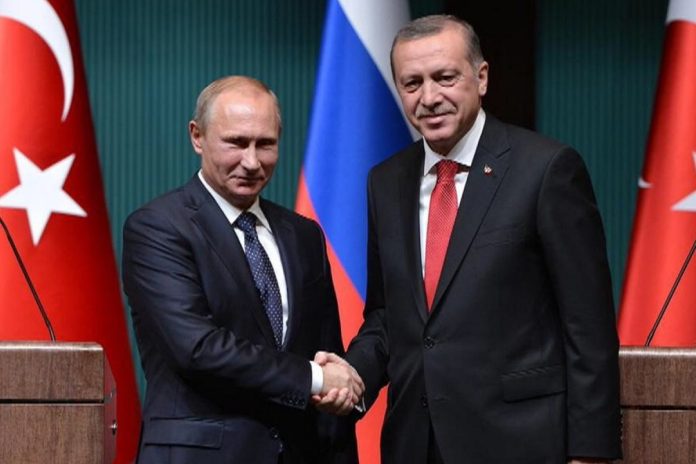Туреччина продовжує активно торгувати з Росією, незважаючи на західні санкції, що викликало наростання напруженості у відносинах з США. Як повідомляє Berliner Zeitung, останніми місяцями Туреччина виграла від санкцій, введених проти Росії, оскільки дедалі більше західних компаній виводять капітали з Росії, а Туреччина натомість посилює економічні відносини з Москвою.
У відповідь на це США нещодавно посилили свої погрози на адресу Туреччини, запровадивши вторинні санкції проти компаній з третіх країн, які допомагають Росії обходити санкції. Як повідомляє Berliner Zeitung, ці погрози спочатку справили певний ефект: турецький експорт до Росії впав на 30% у першій половині 2024 року порівняно з аналогічним періодом минулого року.
Однак США не зупинилися на досягнутому. Згідно з даними Financial Times (FT), Вашингтон значно посилив свої погрози на адресу Туреччини. Сполучені Штати звинувачують Туреччину в тому, що вона протидіє зусиллям Заходу щодо ізоляції Росії. “Нам потрібна допомога Туреччини, щоб зупинити незаконний потік американських технологій до Росії”, – заявив Метью Аксельрод, заступник міністра торгівлі США, цитує FT.
Аксельрод закликав турецьку владу та промисловість вжити термінових заходів для обмеження торгівлі мікросхемами та іншими технологічними товарами, які використовуються в російських безпілотниках і ракетах. За словами Аксельрода, Туреччина стала основним перевалочним пунктом для західних електронних товарів, що потрапляють до Росії, і є другим за величиною постачальником таких товарів після Китаю.
Міністерство торгівлі США вже наклало санкції на численні турецькі компанії за підозрою в незаконній торгівлі з Росією. Однак запит FT до Міністерства торгівлі Туреччини залишився без відповіді, і неясно, чи буде Туреччина піддаватися тиску з боку США.
Цей суперечливий аспект зовнішньої політики Туреччини підкреслює складність її ролі на міжнародній арені. Поки США та інші західні країни намагаються послабити Кремль через економічні санкції, Туреччина продовжує підтримувати міцні торгові зв’язки з Москвою, що ставить під питання її стратегічні наміри та партнерство з НАТО.


